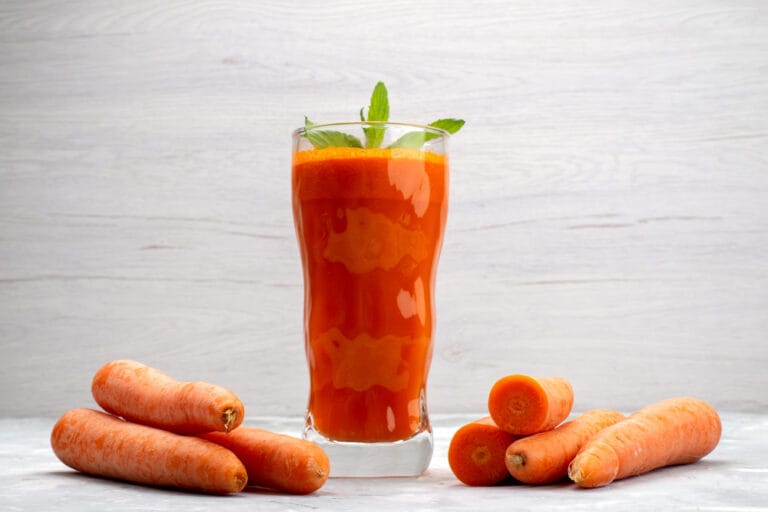FREE SHIPPING OVER $50
The Key to Reducing Your Heart Disease Risk May Already Be in Your Fridge, New Study Says
Heart disease is one of the leading causes of death worldwide, but what if the secret to lowering your risk was already sitting in your fridge? A groundbreaking new study suggests that certain everyday foods could play a major role in heart health, reducing inflammation, improving cholesterol levels, and even lowering blood pressure.
If you’re looking for an easy, science-backed way to protect your heart, keep reading—because the key to better cardiovascular health might be closer than you think.
What the New Study Reveals About Diet and Heart Disease

Recent research published in a top medical journal has found a strong link between diet and heart disease risk. The study analyzed thousands of participants over several years, tracking their eating habits and heart health markers. The key takeaway? Certain nutrient-dense foods, already found in most kitchens, can significantly lower the risk of heart disease when consumed regularly.
But what are these heart-friendly foods, and how do they work? Let’s break it down.
Heart-Healthy Foods You Likely Already Have
1. Leafy Greens
Spinach, kale, and Swiss chard are packed with vitamins, minerals, and antioxidants. These greens are rich in nitrates, which help improve blood vessel function and lower blood pressure.
2. Berries
Blueberries, strawberries, and raspberries contain anthocyanins—powerful antioxidants that reduce inflammation and oxidative stress, both of which contribute to heart disease.
3. Fatty Fish
Salmon, mackerel, and sardines are excellent sources of omega-3 fatty acids, which have been shown to lower triglycerides, reduce blood clotting, and decrease the risk of arrhythmias.
4. Nuts and Seeds
Almonds, walnuts, flaxseeds, and chia seeds provide healthy fats, fiber, and plant-based protein that help lower LDL cholesterol and reduce overall cardiovascular risk.
5. Olive Oil
A staple of the Mediterranean diet, extra virgin olive oil is packed with monounsaturated fats and antioxidants, which help protect against inflammation and oxidative damage.
6. Whole Grains
Oats, quinoa, and brown rice are rich in fiber, which can help reduce cholesterol levels and improve heart health over time.
7. Dark Chocolate
Yes, chocolate can be heart-healthy! Dark chocolate (70% cacao or higher) contains flavonoids that improve blood flow and lower blood pressure. Just be mindful of added sugar.
8. Legumes
Beans, lentils, and chickpeas are loaded with fiber and plant-based protein, both of which help regulate blood sugar and cholesterol levels.
How These Foods Benefit Your Heart
Eating a diet rich in these foods provides multiple benefits for your cardiovascular system:
- Lower blood pressure – Nitrates in leafy greens and flavonoids in berries help keep your arteries relaxed.
- Reduced cholesterol levels – Fiber from whole grains, nuts, and legumes helps eliminate excess cholesterol.
- Decreased inflammation – Antioxidants in berries, dark chocolate, and olive oil fight oxidative stress.
- Better blood sugar control – Whole foods like legumes and nuts prevent insulin spikes that can damage arteries.
Simple Ways to Incorporate These Foods Into Your Diet
Adding these heart-friendly foods to your routine doesn’t have to be complicated. Here are some easy ways to make them a regular part of your meals:
- Start your day with a heart-healthy smoothie – Blend spinach, berries, flaxseeds, and almond milk for a nutrient-packed breakfast.
- Swap refined grains for whole grains – Use quinoa instead of white rice, or choose whole-wheat bread over white bread.
- Snack smart – Munch on a handful of walnuts or almonds instead of processed snacks.
- Cook with olive oil – Use it as a base for salad dressings or drizzle it over roasted vegetables.
- Include fatty fish in your meals – Aim for two servings of salmon or sardines each week.
The Bottom Line
You don’t need an expensive supplement or a complicated diet plan to protect your heart. The foods already sitting in your fridge can make a significant difference in your heart health. By making simple swaps and prioritizing whole, nutrient-dense ingredients, you can lower your risk of heart disease and feel better in the process.
Related Articles
- The Key to Lowering Your Diabetes Risk May Already Be in Your Fridge, New Study Says
- The Key to Reducing Your Obesity Risk by 10% May Already Be in Your Fridge, New Study Says
- The One Snack That Keeps Your Blood Sugar in Check—And Tastes Amazing Too
- 10 No Sugar Snacks You’ll Want to Keep Stocked at All Times







